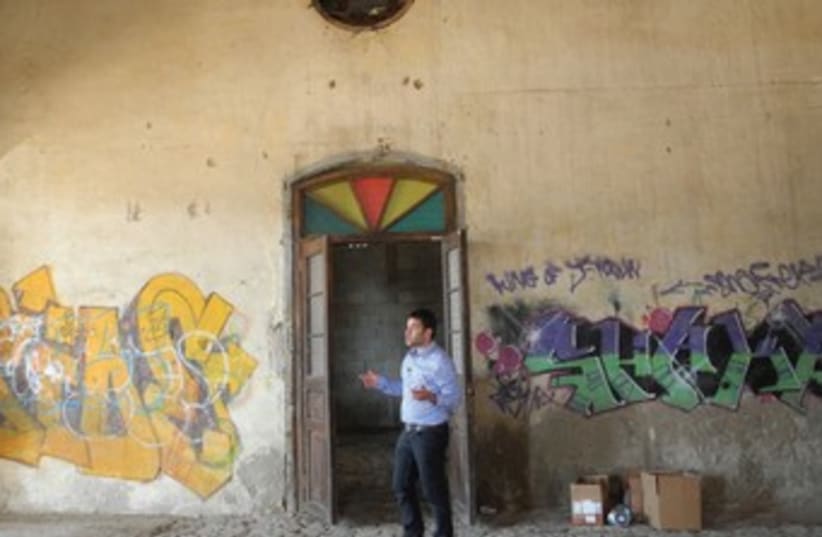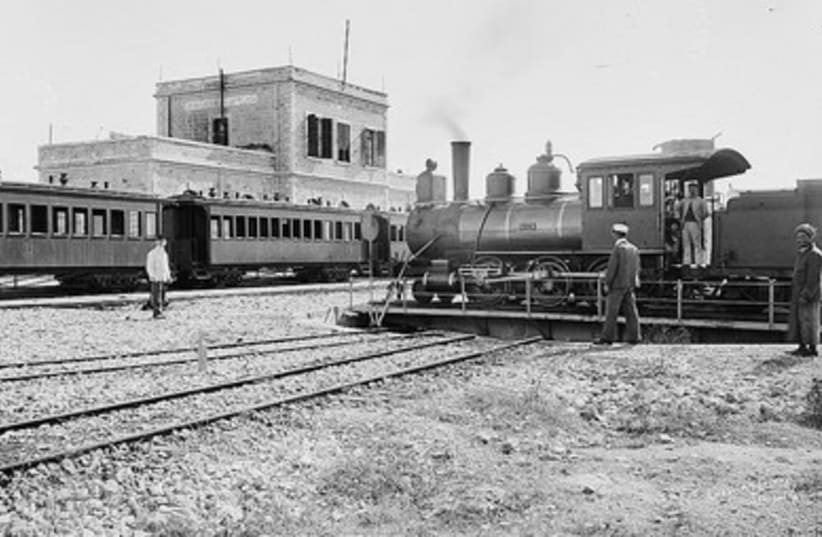
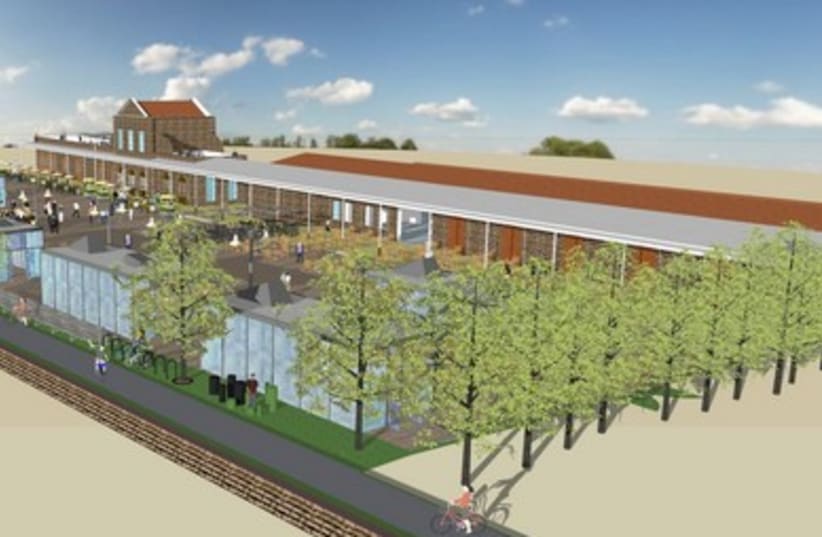
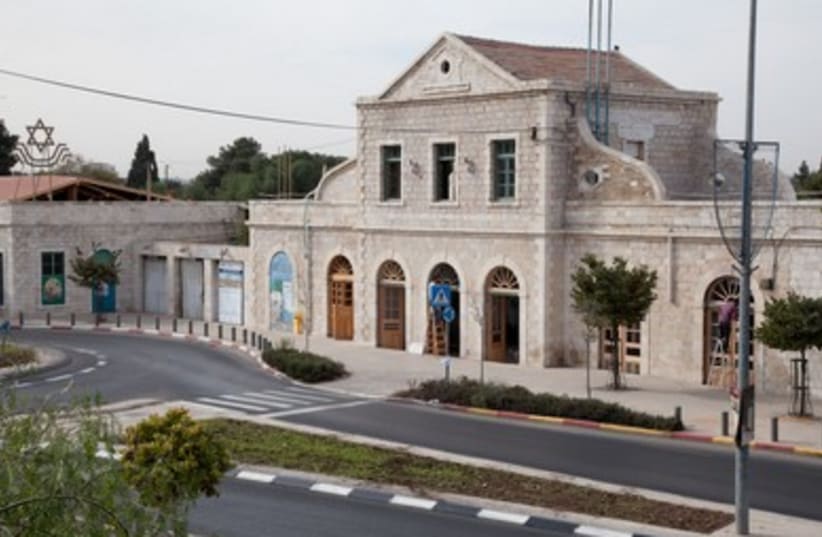
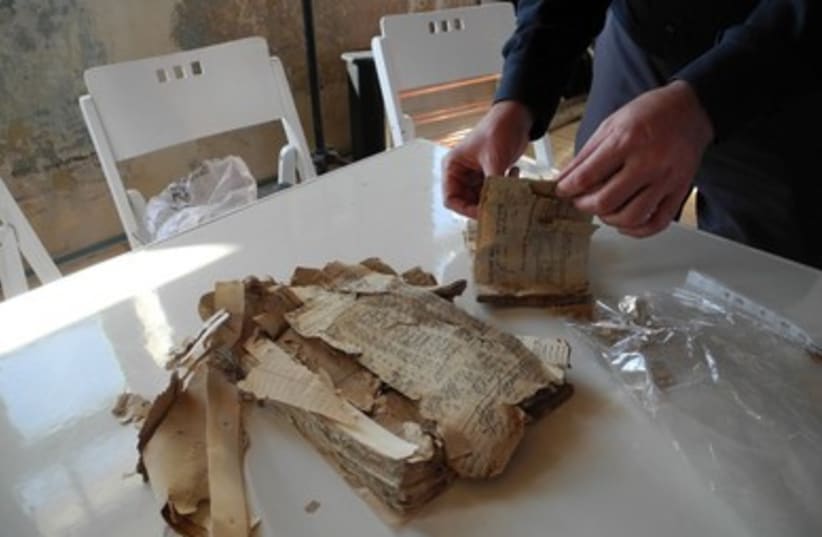
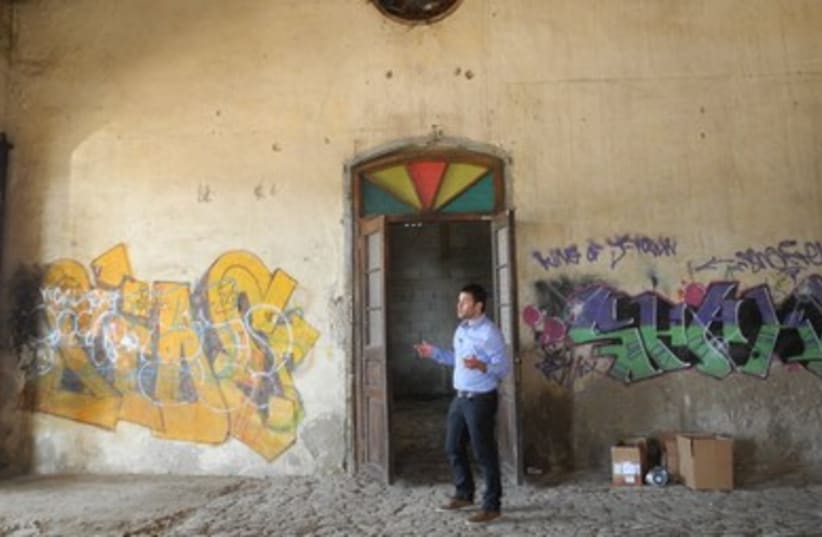
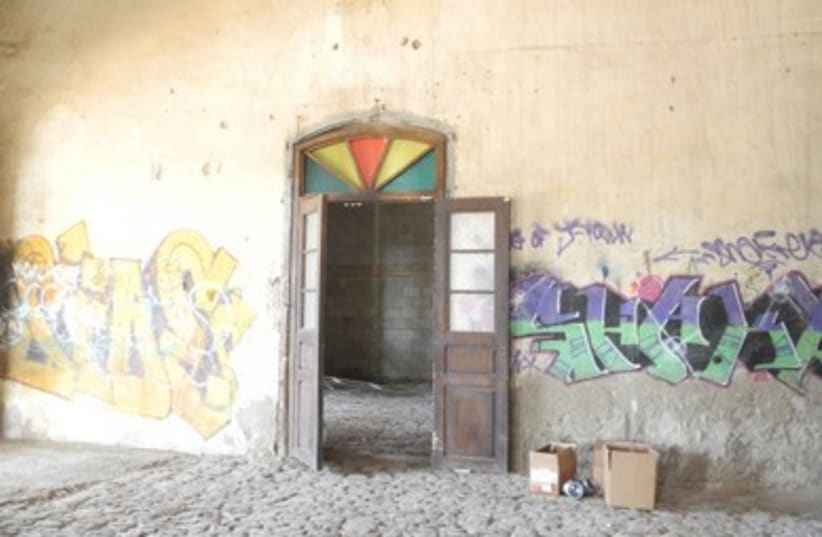

The train station complex is expected to open in April. Avi Murdoch, a contractor who helped transform the Neveh Tzedek train station in Tel Aviv, designed the renovations for Jerusalem’s train station, which will be called “First Stop.”The plan will preserve as much as possible of the old building, including some of the graffiti from the past decade when the train station was abandoned and neglected. In the courtyard, freestanding structures built to look like train carriages will host small pubs and cafes.The 0.7-hectare (1.7 acre) complex will have seven restaurants, including two from celebrity chef Moshe Segev, four ice cream or coffee stands, a 300-sq.m. gallery, a boutique market and concert space – with the ability to seat 2,000 people in its restaurants and cafes. During the summer, there will also be areas for outdoor movies and 30 moveable carts will feature a market set to change daily. Once a week, the carts will sell organic produce straight from southern farmers; on another day, the carts will house a handicraft market.The complex has drawn the ire of the haredi community because some of the restaurants and cafes will be open on Shabbat.“We are not expecting any pressure [about being open on Shabbat],” said Murdoch, who also lives in the neighborhood. “This was built at the request of the people.”Barkat said the train station will not change the Jerusalem status quo of public areas and buildings remaining closed on Shabbat.“This isn’t closing [on Shabbat] because this is a private area and it is the decision of the owner,” the mayor said. “As a public body, we cannot force anyone to stay open or closed on Shabbat.”Jerusalem Awakening director Ofer Berkovitch is overseeing the development of First Stop as its strategic and content manager. He believes that offering young people choices for entertainment and leisure will encourage more of them to stay in the capital.With its imposing wooden doors, stained glass windows and carved stone details, the building still retains the elegance of early 20th-century rail travel, combining Jerusalem’s unique history with a modern usage.Isaac Shweky, head of the Council for the Preservation of Historic Sites, concurs. He gave his blessing to the project, which he called “a perfect fit of development and preservation.”
